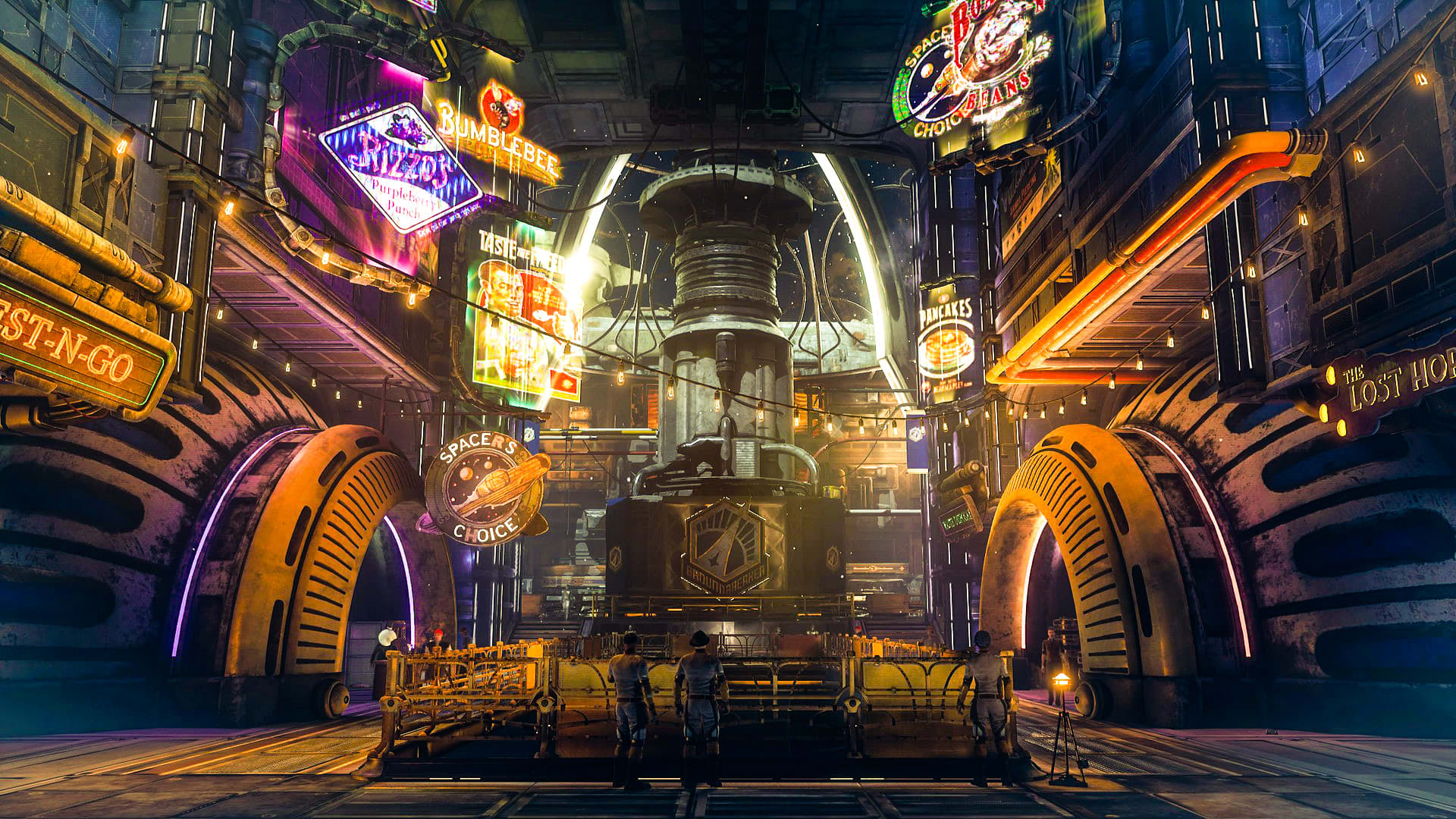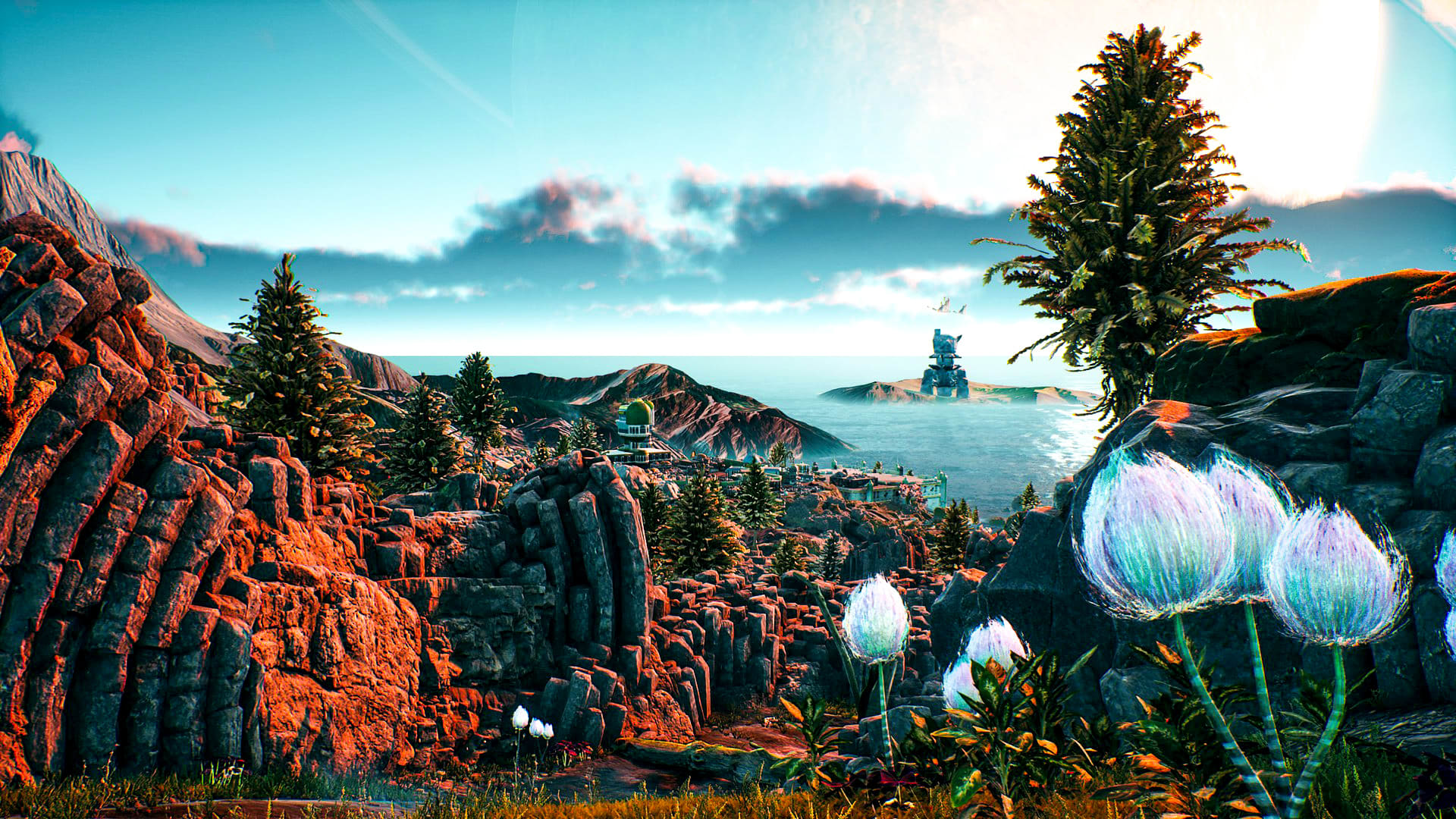“What is the nature of the physical universe and what is the nature of human thinking?” The ‘world-riddle’ posed by Ernst Haeckel over a century ago ripples through this fine-tuned, deep-thinking sci-fi western adventure.
His influences don’t stop at the philosophical questioning The Outer Worlds encourages; the wilderness is alive with otherworldly flora that appears to have been plucked from his Kunstformen der Natur. Feeling like an outsider, even an invader, is not uncommon when traversing an environment so wild and savage. Impossible rock formations tower above your dwarfed space traveller and feeling even an ounce of power in such an unpredictable atmosphere is quite the achievement; and when you do, it feels good. The colonised areas, on the other hand, tell a very different story. Here, Art Deco meets neo-noir, with holographic advertising set against a sleek industrial backdrop, which, when first experienced, convincingly masks the oppression and political struggles that lie just beneath the surface.
A powerful overseeing body known as The Board require citizens to read from a script as they push slogans that paint the image that to live under their eye is to be a member of a protective and prosperous family. Only with delicate and manipulative questioning may they slip and expose glimpses of their true doubts and desires. Typical of a struggle to maintain control, corporate corruption soon becomes apparent when their solution is to enforce overly harsh punishments and rewards are relative to compliance. This is often revealed in a humorous light; however, it is undeniably likened our own world, leaving an uncomfortable, bitter taste. Those who choose freedom are exiled to the dangers of the wild and are labelled deserters. I think it is fair to presume that most of us would side with these underdogs, but they are not without their faults. Living in hope and with few other options leaves them vulnerable to fanatical leaders who promise ideals, and the lack of rules and regulations breeds anarchy and discord.
The Outer Worlds excels in moral decision making. Conversations with civilians may appear trivial, but can lead to a complex lesson of cause and effect. Whole communities can thrive at the sacrifice of another, and these decisions are often made on gut feeling and information gathering. Having an inquisitive nature reveals vital lore on historical events, secret scientific experiments, or simply information on the colonies’ dubiously sourced food supplies. Even if this information is not directly useful, it is invaluable in building the world’s depth and ultimate immersion.
The Outer Worlds is a streamlined yet intricate planet-hopping, smirk-inducing venture, where ‘bigger means better’ has been proven to be a common misconception. Each turning of a corner is rewarded with surprise and intrigue; there has been no needless filling of space here. It is a powerful labour of love that truly respects its sci-fi influences through cheeky homages that not everyone will appreciate, but those that do will do well to not have that warm, “oh you guys” feeling.









